How to Keep Your Car Looking Like New Without Ever Waxing It
Modern technology and products eliminate the need to painstakingly wax your car every few weeks.
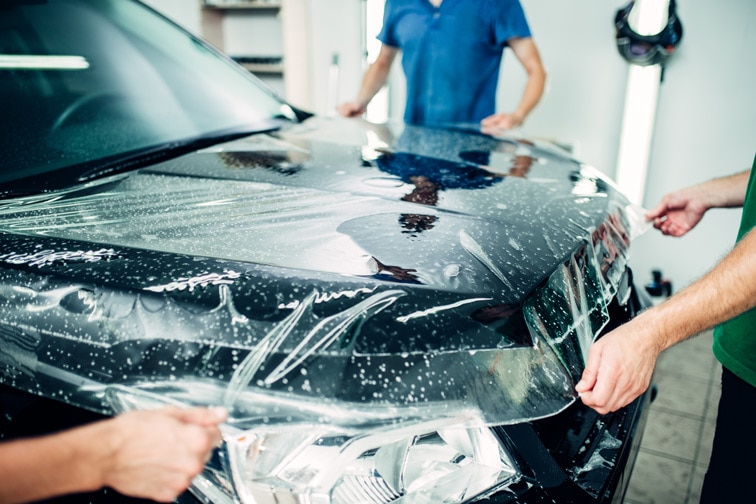
From the way your car shines in the afternoon sun to the way rain beads and runs off the paint, appearance goes hand-in-hand with pride in ownership. We all want our cars to stay looking brand new, but we don't want to spend every few weekends washing and waxing them.
The problem is that every time you drive, you’re in a concrete jungle filled with your paint’s mortal enemies. Virtually anything can harm your finish, from rock chips to brake dust, not to mention the acidic impact of bird droppings and bug splatters. Worst of all, the sun’s UV rays can fade even the most vibrant hues. In other words, keeping your car looking like new means doing more than merely cleaning it.
While a regimen of washing and waxing is the traditional way of keeping a car looking its best, this is the 21st century: there are better ways, at almost every price range. Modern technology and products have made protecting your car a nearly effortless and cost-effective endeavor… if you know what to look for.
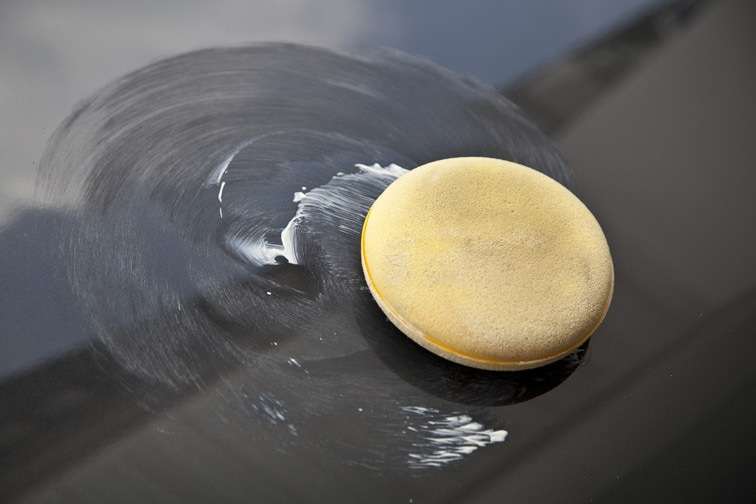
Waxing your car is antiquated
Traditional car wax is an old-school method that, while not bad, is hardly efficient. Strictly speaking, the term “wax” refers to carnauba wax, a natural product derived from carnauba palm trees in Brazil. Carnauba wax is also used as a coating on hard candies and medicines and to keep some fruits looking shiny on your grocery store’s shelf. When spread across a car’s paint, it forms a hard, microscopic shell that helps protect paint from the aforementioned contaminants.
It works well, too… for about two weeks in a harsh summer, meaning you’ll have to keep applying it over and over if you want to keep your car optimally protected. That’s fine if you’re a disciple of Mr. Miyagi’s wax on, wax off philosophy, but if keeping your car shiny isn’t your idea of a meditative practice, it can be a bit burdensome.
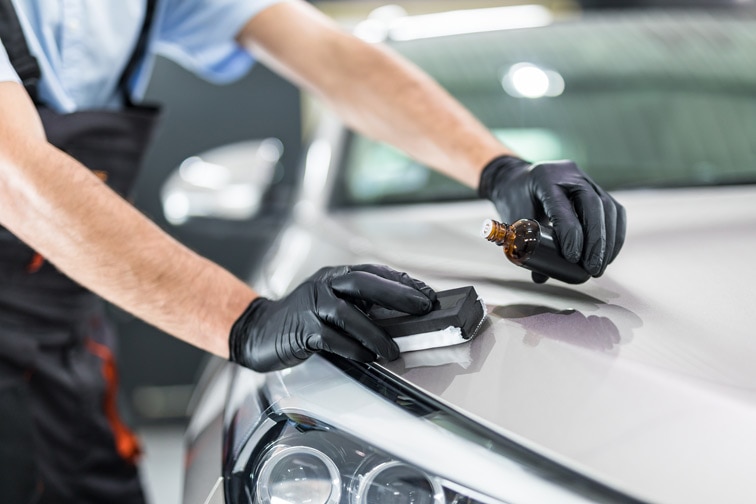
Modern products can be easier to use and last a lot longer
There are a host of products on the market today that truly give your car the kind of protection you want from a traditional wax, but with much less effort, far greater durability, or both. They break down into three large buckets: sealants, silica coatings, and ceramic coatings.
Sealants are probably the closest thing to old-school wax. They’re synthetic, come in a bottle, and by and large you apply it like you would a liquid wax, wait a little bit and buff it off. Sealants tend to cost a little more than the cheapest waxes, but are in-line with mid-market carnauba wax (a $10 bottle should last you a couple of years). They also tend to last longer than real wax, to the tune of several months to half a year, depending on how harsh your climate is and whether you keep your car in a garage.
Silica sprays are among the newest products on the market, and offer several months of protection and water-repelling tendencies in the form of an easy-to-apply spray that can be applied in minutes. Silica (SiO2) is essentially quartz, and comes in several forms. The crystalline form is a known carcinogen, but the stuff used for cars is considered safe, and is even used as a preservative in many food products. Silica sprays are more expensive than sealants—over $30 for a 16oz bottle—but the ease of use and longevity means it will likely last you more than a year while saving you tons of time.
Ceramic coatings (shown above) are the current gold standard in keeping your car as shiny as possible. They’re also the most expensive and hardest to use. The coatings form a molecular bond with the top layer of your car’s paint, and cure into a glass-like surface that shines and protects brilliantly. A kit to coat a single car can cost in excess of $100, and frankly, ceramic coatings aren’t for novices. They should be left to experienced auto detailers, which runs the price to anywhere between $500 and $1,000. Is it worth it? That’s a personal choice, but, the combination of protection and shine really is unrivaled, with water sheeting off of the paint almost instantly, and with durability that can last up to two years.
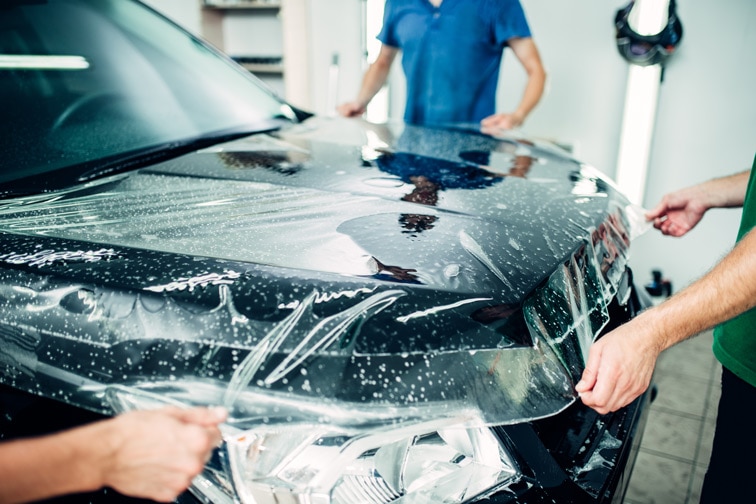
Use “invisible” film to protect against chips
Like death and taxes, rock chips are an unpleasant fact of life. While sealants and coatings offer the best ways to keep your car shiny, they don’t protect against the pelting your car takes when you’re out for a drive, or on your way to work in the morning. Clear films have been around for a while, and can be installed at many dealerships or almost any shop that also tints windows. Think of it like the automotive equivalent of the plastic covers your grandmother kept on her dining room chairs, only far less noticeable and embarrassing. The best part about film is that it can be installed on as much or as little of the car as you’d like, based on cost.
Want to just protect the front bumper? That’s fine. Want your doors protected, too? Also fine. It does cost a pretty penny, often running well over $1,000 to protect the front, hood, and other high-risk areas, but if your car is absolutely pristine, you could think of it as insurance against rocks. Since selling a car with badly faded paint and countless rock chips can be tough, your car’s appearance can also directly impact how much it depreciates.
Related Article
How to Make Depreciation Work for You
Plan ahead when taking a road trip
Even if you don’t shell out for protective film, there are cost-effective options that offer similar protection on a temporary basis. For example, you can cover the front of your vehicle in a temporary film that starts under $30, or even use a spray paint-like coating that dries clear, then peels off like a sticker. After you get home from a road trip, peel it off...and watch the bugs peel off with it.
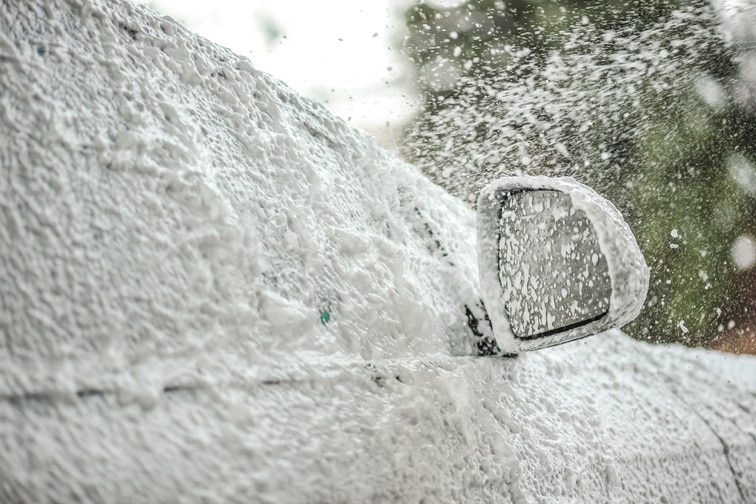
Throw a foam party for your car
It should go without saying that washing your car regularly is important. But how you wash your car is just as important. Automated car washes have come a long way from the harsh-brushed mechanisms of decades past, but they still use harsh, acidic chemicals to remove dirt, which can accelerate the aging of plastic and rubber trim items. If you wash by hand, use two buckets—one for suds, and one to rinse the dirty wash mitt—to avoid grinding dirt into the paint.
For some, washing cars is a relaxing exercise. If that’s you, you can get what’s called a foam cannon, which uses high pressure to exacerbate the amount of suds produced by the soap. In addition to being a cool way to wash a car, the foam helps lift dirt away from the paint, making the washing process safer and easier than before.
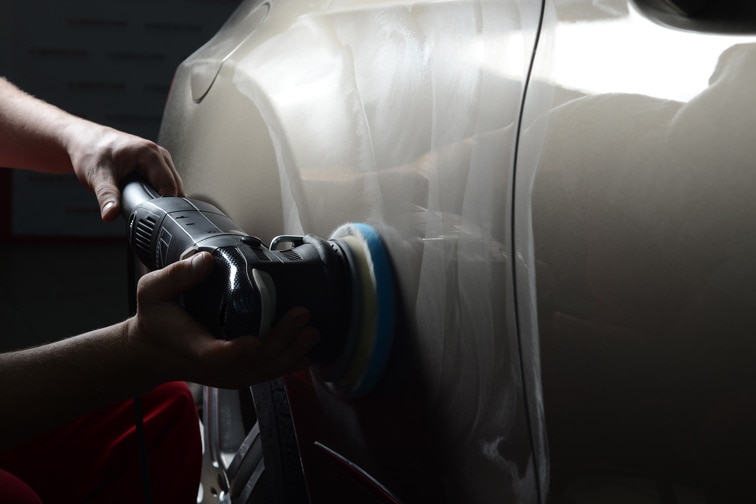
Like anything else, preparation is key
All the protective products above have one key trait in common: they don’t mask imperfections. If your car is brand new, you don’t have* to do anything prior to protecting the paint. If it’s pre-owned however, taking the time to prepare the paint is well worth it. The whole process is beyond the scope of this article, but a thorough detail would include, at a minimum, using a good polishing compound to remove minor swirls and clean up other minor imperfections. That will leave your paint nice and clean, ready to be protected for years to come.
*Many enthusiasts do prefer to detail a brand new vehicle for various reasons, but for the average owner, the benefit isn’t that great.
Written by humans.
Edited by humans.
 Aaron Miller
Aaron MillerAs a veteran automotive journalist, I have been fortunate enough to drive some of the most desirable cars on the planet and get to know some of the most important people in the industry. Before joining Capital One, I served as the Cars Editor for a major national website, and covered industry news and analysis for well-known automotive-specific sites. I also wrote feature articles and reviews for niche enthusiast websites. I’ve been obsessed with cars since—literally—before I can remember, with my collection of die-cast and slot cars taking center stage during my formative years. Simply put, for me, working isn’t really “work.”
Related articles
View more related articles